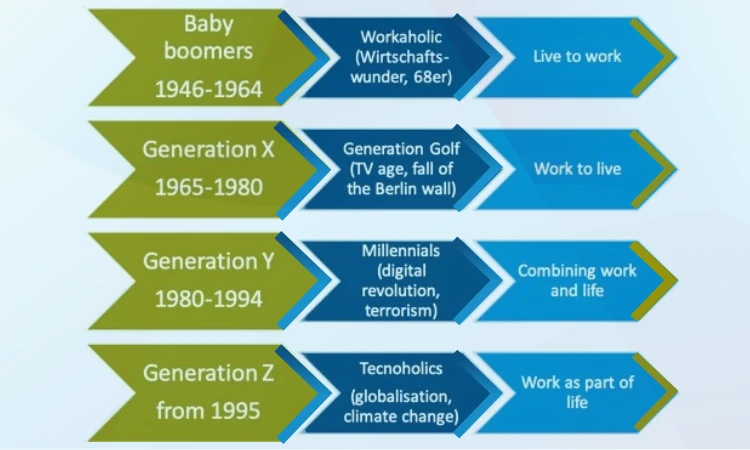Introduction
Generation Z (Gen Z) homeownership compared to previous generations. With a focus on sustainability, technology, and flexibility, Gen Z is reshaping the real estate market by prioritizing. Experiences over material possessions and seeking out alternative housing options such as co-living spaces and tiny homes. Gen Z is searching for luxury homes also. So, openplot explains how Generation Z redefining homeownership trends.

Table of Contents
- Who is Generation Z (Gen Z)?
- What is the Economic Context for Generation Z?
- Overview of Home Ownership Trends
- Gen Z’s Unique Approach to Financial Planning
- The Shift from Traditional Homeownership Values
- The Impact of Economic Challenges on Gen Z’s Homeownership
- Frequently Asked Questions
Homeownership has long been a symbol of financial stability and personal achievement in many cultures. However, with the rise of Generation Z, those born between 1995 and 2012. The traditional attitudes toward homeownership are undergoing a significant transformation. This generation has grown up during times of rapid technological change and economic uncertainty. Brings a fresh perspective to what it means to own a home. They can choose luxury and tiny homes.
Who is Generation Z (Gen Z)?
Generation Z, often referred to as “digital natives,” is the first generation to grow up with the internet from a young age. They are tech-savvy, socially conscious, and highly influenced by global events. Their values, behaviors, and attitudes toward life, work, and financial decisions, including homeownership. They are shaped by their unique experiences with the digital world and shifting economic landscapes. They are using digitalized technology.

What is the Economic Context for Generation Z?
Economically, Gen Z faces unique challenges. They are entering the workforce in an era marked by wage stagnation. A skyrocketing cost of living and the lingering effects of the 2008 financial crisis. Additionally, many Gen Zers are saddled with student loan debt. Which significantly affects their financial choices, including the decision to purchase a home. Most of the people use the bank loans. It is a smooth and easy process.
Overview of Home Ownership Trends
The overview of home ownership trends is generally high-range. Historically, Baby Boomers and Gen Xers were more likely to pursue homeownership as a key milestone in adulthood. Millennials, however, began to deviate from this trend due to financial constraints and shifting priorities.
Now, Gen Z is informed by the economic realities they have witnessed. It is redefining what it means to be a homeowner. Often prioritizing flexibility and affordability over traditional long-term homeownership.
Gen Z’s Unique Approach to Financial Planning
Generation Z takes a markedly different approach to financial planning compared to previous generations. Having seen the economic downturns of their childhood and the uncertainty wrought by global events. They tend to be more conservative with money and focus heavily on financial security. They are interesting, and an in-depth analysis reveals.
Prioritizing Financial Security
Gen Z prioritizes saving and building financial safety nets. Instead of rushing into homeownership, they are more likely to invest in savings, stock market portfolios, and cryptocurrencies to ensure a secure financial future. Homeownership is seen as just one piece of a larger financial puzzle. Gen Zers are saving money and time. They understand the financial safety of homeownership.
How Gen Z Balances Debt and Savings
For many in this generation, student loan debt is a significant obstacle. Gen Z tends to be pragmatic about debt, balancing loan repayments with savings goals. Many are postponing homeownership until they have paid the down payment. That is debt or accumulated enough savings to make a substantial down payment. They need the payments on time.
The Shift from Traditional Homeownership Values
One of the most notable trends among Gen Z is their departure from the conventional view of homeownership. The idea of buying a house and settling down in one location for decades no longer holds the same appeal. In some cases, can be increased or decreased. Gen Z is more interested in urban living, smaller homes, or alternative housing options. That aligns with their values, such as sustainability and minimalist living.
Renting vs. Buying: A Pragmatic Approach
Many Generation Zers prefer renting over buying, at least initially. Renting offers flexibility, important for a generation that values travel, job mobility, and new experiences. Rather than viewing homeownership as a necessity. They see it as one of many options for housing.
This mindset allows them to prioritize other aspects of their lives, such as career growth and personal development. Additionally, renting can also provide a sense of freedom from the financial responsibilities and commitments that come with owning a home.
Gen Z is less interested in permanence and more focused on adaptability. They want the freedom to move for job opportunities or personal reasons, and renting allows for this flexibility. Owning a home can feel restrictive. Especially for those who prioritize experiences over material possessions.
Eco-Friendly Future Modern Homes
Step into the future of luxury living with eco-friendly features like LEED-certified buildings, solar power, and sustainable materials. Experience the convenience of smart home technology, including advanced AI-powered systems, biometric security. Energy-efficient designs, setting a new standard for modern living.
Elevate your well-being with wellness-centric amenities. Such as air purification, yoga studios, and personalized health services, creating an unparalleled living experience. The modern amenities are working AI-dependently. This type of home has more benefits, like time and power savings.
The Impact of Economic Challenges on Gen Z’s Homeownership
Financial constraints play an important role in shaping Gen Z’s approach to home ownership. From rising costs of living to stagnant wages, the financial hurdles for this generation are high. So, this generation is facing more financial problems.
One of the biggest challenges for Gen Z is the mismatch between wages and rising housing costs. In many urban centers, property prices are unaffordable for young people. Pushing them to rent or seek more affordable alternatives. They are facing heavy financial problems, like high demand for the rental property.
Conclusion
Generation Zers’ thing is different styles. Appropriately, developing the technology and strategy also. They are more focused on experiences and flexibility, which is reflected in their approach to homeownership. This generation values convenience and affordability, often opting for smaller ones. More affordable homes or even choosing to rent instead of buy. Sometimes it is the best solution.
| Also read Hyderabad is Second in Most Expensive Residential Real Estate Market in India Hyderabad has seen a surge in demand for luxury properties, driving up prices in the residential real estate market in India. This trend is attributed to the city’s growing economy and the influx of high-net-worth individuals looking for upscale living options. What Are the Pros and Cons of Co-living in Gurgaon? In recent years, co-living has emerged as a popular trend in urban India, especially in fast-growing cities like Gurgaon. Known for its rapid development, corporate culture, and vibrant social life, Gurgaon attracts young professionals, entrepreneurs, and students from all over the country. Once check the pros and cons of co-living in Gurgaon. Dream Home: A Guide to Property Quality Check Solutions You are buying a home or villa plan. It is a middle-class people’s dream. Buying a property, i.e., reaching a milestone in one’s life. But every person has a dream home. Whether it’s a cozy cottage in the countryside or a modern urban apartment. Having a place to call your own is a significant achievement. It provides stability, security, and a sense of pride for individuals and families alike. |
Frequently Asked Questions
Q. Why is Gen Z delaying homeownership?
A. One reason Gen Z is delaying homeownership is due to the high levels of student loan debt they are carrying. Additionally, many young adults in this generation are prioritizing experiences and flexibility over settling down in one location.
Q. What types of homes are Gen Z most interested in?
A. Gen Z is most interested in homes that are eco-friendly, sustainable, and equipped with smart technology. They prioritize spaces that promote minimalism, functionality, and flexibility to accommodate their fast-paced lifestyles.
Q. How does Gen Z’s financial situation differ from Millennials?
A. Gen Z is facing economic challenges such as student loan debt and high cost of living, which are impacting their ability to save and invest.